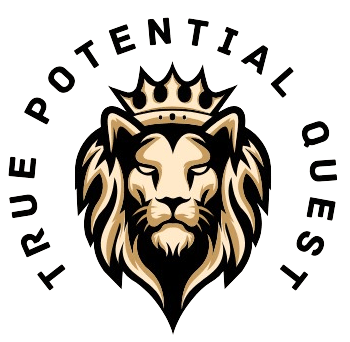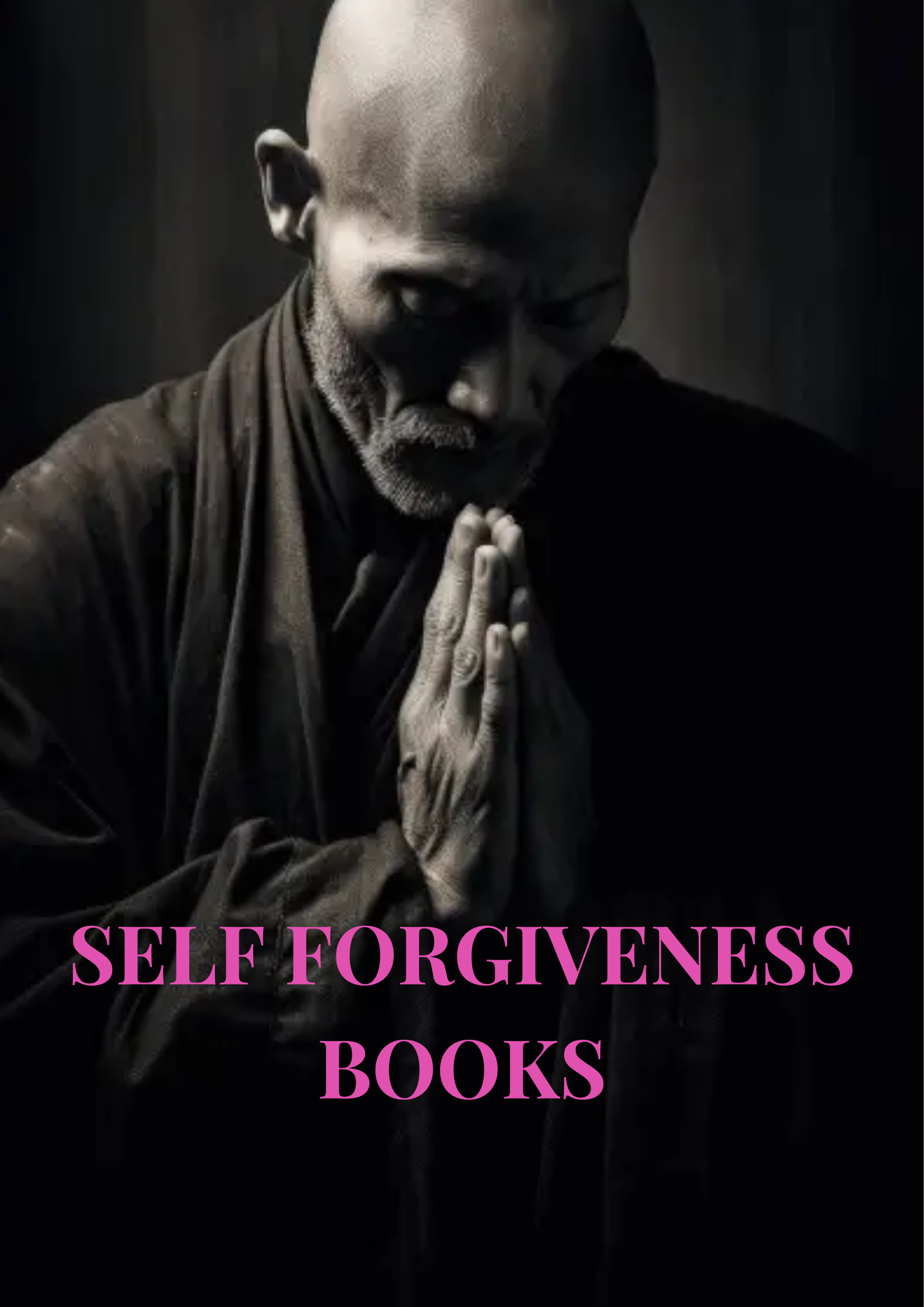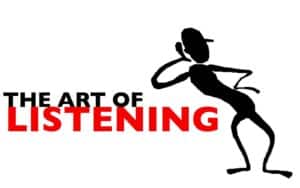Jump to Section
How do you react when you make a mistake?
Do you offer yourself words of self-forgiveness, or do you find yourself trapped in the cycle of shame and blame?
As perfectionists, we often hold ourselves to extremely high standards, believing that flawlessness will protect us
However, sometimes the very behaviours we thought kept us safe end up wearing us down over time. The good news is, we can change. We have the power to choose transformation.
Do you want to be someone who is harsh on yourself and others or someone who can extend forgiveness for honest mistakes?
Let’s break free from the grip of perfectionism and embrace a mindset of compassion and understanding, both for ourselves and those around us.
Exploring Self-Forgiveness
Forgiving yourself books gives you depth into Self-forgiveness which is a profound act of self-love and empowerment, yet its importance often goes beyond the surface-level explanations found on many websites. Beyond the typical discussions of releasing guilt and moving forward, self-forgiveness is a gateway to reclaiming our inner power and rewriting our life narrative.
Check This Blog: The Liberating Journey of Self-Forgiveness: 4 Simple Healing Techniques For Guilt and Shame To Have Inner Peace
When we forgive ourselves, we’re not just letting go of past mistakes; we’re challenging the very notion that our worth is defined by our actions. It’s about recognizing that we are inherently valuable, regardless of our past choices or behaviours. With the help of forgiving yourself books we dismantle the belief that we must constantly punish ourselves for our perceived wrongs.

Moreover, self-forgiveness is an act of radical rebellion against societal norms that often dictate we should be perfect or face eternal shame. It’s a declaration that we refuse to be bound by these unrealistic standards and instead choose to embrace our humanity in all its messy glory.
Self-forgiveness also opens the door to deeper self-awareness and personal growth. When we forgive ourselves, we acknowledge our capacity for growth and change. We recognize that mistakes are not failures but rather opportunities for learning and evolution. Through self-forgiveness, we cultivate resilience and wisdom, turning our wounds into sources of strength.
Furthermore, self-forgiveness fosters compassion, not only for ourselves but for others as well. When we extend forgiveness to ourselves, we become more understanding and empathetic towards the struggles of others. We recognize that we’re all imperfect beings on a journey of growth and self-discovery.
Self-forgiveness holds profound significance in various cultural and spiritual traditions, including the teachings of Lord Krishna in the Bhagavad Gita. In this ancient text, Krishna imparts wisdom on the importance of self-forgiveness through the concept of “Karmanye Vadhikaraste Ma Phaleshu Kadachana” which translates to “You have the right to perform your actions, but you are not entitled to the fruits of your actions.”
Krishna’s teachings emphasize the idea of detachment from outcomes and focusing instead on performing one’s duty without being attached to the results. This concept encourages individuals to forgive themselves for any perceived failures or shortcomings in their actions, as they are not ultimately in control of the results.
In this perspective, self-forgiveness is not just about releasing guilt or shame, but about recognizing the inherent limitations of human agency. By going through the process of reading Forgiving Yourself books, we acknowledge that we are imperfect beings navigating a complex world and that our worth is not contingent upon achieving specific outcomes.
Krishna’s teachings also highlight the importance of self-awareness and self-acceptance. He encourages Arjuna, the protagonist of the Bhagavad Gita, to accept himself fully, including his doubts and fears, and to move forward with courage and conviction. This message of self-acceptance underscores the idea that self-forgiveness is a fundamental aspect of spiritual growth and personal transformation.
Check This Blog: Power of Gratitude Awareness: 7 Outstanding Reasons To Thriving Your Gratitude Journal Practice
In this light, self-forgiveness becomes a powerful tool for cultivating inner peace and spiritual evolution. It allows individuals to let go of the burden of past mistakes and to embrace a deeper sense of self-love and acceptance. By anchoring on forgiving yourself books, we align with the divine within us and move closer to realizing our true potential.
Krishna’s teachings on self-forgiveness remind us that we are all divine beings on a journey of self-discovery and growth. Through the practice of self-forgiveness, we honour our humanity and reconnect with the inherent goodness and wisdom that resides within us.
Self-forgiveness is a revolutionary act that challenges the status quo and transforms our relationship with ourselves and the world around us. It’s a reminder that we are worthy of love and belonging, no matter what mistakes we’ve made. So let’s embrace the power of self-forgiveness and reclaim our inherent worth and dignity.
The Concept of Using Forgiving Yourself Books
In the journey of life, you encounter moments of regret, guilt, and self-doubt. You make mistakes, stumble, and sometimes fall. In these moments, the ability to forgive yourself becomes paramount for your emotional well-being and personal growth. Yet, self-forgiveness is often easier said than done. This is where the concept of using “Forgiving Yourself Books” comes into play.
Check This Blog: Beyond Success: 5 Ways To Crafting an Amazing Meaningful Life Filled with Purpose
These books, often written by psychologists, spiritual leaders, and self-help authors, offer profound insights, practical exercises, and guidance on how to navigate the challenging terrain of self-forgiveness. They provide a roadmap for healing, self-compassion, and inner peace, empowering you to release the burden of past mistakes and embrace a brighter future.

One of the key reasons why Forgiving Yourself books are so valuable is that they provide a structured approach to the process of self-forgiveness. They break down complex psychological concepts into accessible language and offer step-by-step exercises to help you work through your feelings of guilt and shame.
Moreover, these books offer diverse perspectives on self-forgiveness, drawing from various spiritual and psychological traditions. Whether it’s drawing inspiration from Buddhist teachings on compassion and mindfulness, or delving into cognitive-behavioral techniques for challenging negative thought patterns, forgiving yourself books provide a rich tapestry of wisdom and practical tools for healing.
Another important aspect of these books is that they often include personal stories and testimonials from individuals who have walked the path of self-forgiveness. These real-life accounts offer hope and inspiration to you, showing that you are not alone in your struggles and that healing is possible.
In this blog series, we will explore the concept of using Forgiving Yourself books in greater depth. We’ll delve into some of the most influential books on self-forgiveness, unpacking their key teachings and exploring how they can help you transform your relationship with yourself. Whether you’re grappling with past mistakes or simply seeking greater self-compassion, these books offer invaluable guidance on the journey to self-forgiveness. So let’s dive in and discover the healing power of forgiving yourself books.
Deepening self-forgiveness and its significance
Deepening your understanding of self-forgiveness goes beyond simply letting go of past mistakes; it’s about embracing a profound shift in your relationship with yourself. When you embark on the journey of deepening self-forgiveness, you’re opening yourself up to a transformative process of healing and growth.
At its core, deep self-forgiveness involves recognizing and accepting all aspects of yourself, including the parts you may perceive as flawed or imperfect. It’s about acknowledging that you are human, with strengths and weaknesses, and that making mistakes is a natural part of the human experience.
Check This Blog: Awaken Your Essence: 10 Magical Key Principles To Your True Power
Through deep self-forgiveness, you learn to cultivate self-compassion—a gentle and understanding attitude towards yourself, especially in moments of difficulty or failure. Instead of harsh self-criticism, you offer yourself kindness and understanding, recognizing that you are doing the best you can with the resources you have.

Moreover, deep self-forgiveness requires a willingness to explore and process the underlying emotions and beliefs that may be contributing to feelings of guilt or shame. This involves delving into your past experiences, understanding the root causes of your actions, and releasing any lingering negative emotions tied to those experiences.
Through deep self-forgiveness, you learn to cultivate self-compassion—a gentle and understanding attitude towards yourself, especially in moments of difficulty or failure. Instead of harsh self-criticism, you offer yourself kindness and understanding, recognizing that you are doing the best you can with the resources you have.
As you deepen your self-forgiveness practice, you also cultivate a sense of accountability and responsibility for your actions. Rather than absolving yourself of all responsibility, you take ownership of your mistakes and commit to learning from them. You recognize that forgiveness is not about excusing or condoning harmful behaviour, but about acknowledging it and taking steps to make amends and grow from it.
Moreover, self-forgiveness books play a crucial role in this journey by helping you peel the layers of your personality. They offer insights, exercises, and reflections that encourage introspection and self-discovery. By exploring the teachings and exercises in these books, you gain a deeper understanding of your thoughts, feelings, and behaviours, uncovering hidden beliefs and patterns that may be contributing to feelings of guilt or shame.
As you delve into the pages of self-forgiveness books, you begin to unravel the layers of conditioning, societal expectations, and past traumas that have shaped your sense of self. You confront limiting beliefs and negative self-talk, replacing them with a more compassionate and empowering inner dialogue.
Ultimately, deepening self-forgiveness is an ongoing process—a journey rather than a destination. It requires patience, courage, and commitment to yourself. But as you deepen your capacity for self-forgiveness, you’ll find that you’re able to experience greater inner peace, resilience, and freedom from the past. You’ll come to realize that self-forgiveness is not just about letting go of the past, but about embracing a more compassionate and empowered way of being in the world.
Why Self-Forgiveness Is Essential For Personal Growth and Mental Well-Being?
Self-forgiveness is essential for your personal growth and mental well-being in more ways than you may realize. When you hold onto feelings of guilt, shame, or self-blame, you create a heavy burden that weighs you down and prevents you from moving forward in life.
Check This Blog: Personal Growth – 5 Techniques To Discover Yourself
Firstly, self-forgiveness is crucial for releasing the past and embracing the present. Holding onto past mistakes keeps you stuck in a cycle of negative emotions and prevents you from fully engaging with the opportunities and experiences of the present moment. By forgiving yourself, you free yourself from this cycle and allow yourself to live more fully in the here and now.

Moreover, self-forgiveness is a key ingredient for building self-esteem and self-confidence. When you forgive yourself for past mistakes, you demonstrate to yourself that you are worthy of love and acceptance, despite your imperfections. This boosts your self-esteem and allows you to approach new challenges with confidence, knowing that you can overcome obstacles and grow from your experiences.
Furthermore, self-forgiveness is essential for fostering healthy relationships, both with yourself and with others. When you hold onto feelings of guilt or resentment towards yourself, it can spill over into your interactions with others, leading to conflict and tension. By forgiving yourself, you create space for compassion and understanding in your relationships, allowing for greater intimacy and connection.
Additionally, self-forgiveness is vital for your mental well-being. Holding onto feelings of guilt or shame can contribute to anxiety, depression, and other mental health issues. By practising self-forgiveness, you alleviate these negative emotions and create a sense of inner peace and contentment.
In conclusion, self-forgiveness is essential for your personal growth and mental well-being. By letting go of past mistakes, building self-esteem, fostering healthy relationships, and promoting mental health, self-forgiveness paves the way for a happier, more fulfilling life.
Benefits of Reading Self-Forgiveness Books
How can self-forgiveness books help individuals navigate guilt, shame, and regret?
Self-forgiveness books offer invaluable guidance and support to help you navigate through feelings of guilt, shame, and regret. These books provide a roadmap for understanding and processing these complex emotions, allowing you to heal and move forward with greater clarity and compassion.
Check This Blog: Unveiling Your Authentic Self Blue Print: 4 Eye Openers For Self-Growth
Firstly, self-forgiveness books help you gain insight into the underlying causes of your guilt, shame, and regret. They provide perspectives from psychologists, spiritual leaders, and individuals who have walked a similar path, helping you understand the roots of these emotions and how they manifest in your life.

Moreover, self-forgiveness books offer practical tools and exercises to help you work through these emotions healthily and constructively. Whether it’s journaling prompts, mindfulness practices, or cognitive-behavioural techniques, these books provide a variety of approaches to help you process and release guilt, shame, and regret.
Additionally, self-forgiveness books offer stories and testimonials from individuals who have successfully navigated through their own experiences of guilt, shame, and regret. These real-life accounts provide inspiration and hope, showing you that healing is possible and that you are not alone in your struggles.
Furthermore, self-forgiveness books offer strategies for cultivating self-compassion and self-acceptance. They help you challenge negative self-talk and cultivate a more loving and understanding relationship with yourself, allowing you to let go of feelings of unworthiness and embrace your inherent value.
In conclusion, self-forgiveness books are powerful tools for navigating through guilt, shame, and regret. By offering insights, practical exercises, personal stories, and strategies for self-compassion, these books empower you to heal from past wounds and embrace a more positive and fulfilling future.
Top 10 Self-Forgiveness Books
1. Heal: Discover Your Unlimited Potential and Awaken the Powerful Healer Within
Author: Kelly Noonan Gores

“Heal: Discover Your Unlimited Potential and Awaken the Powerful Healer Within” is a transformative book by Kelly Noonan Gores that explores the innate healing abilities within each of us. In this enlightening book, Gores draws upon scientific research, spiritual wisdom, and personal anecdotes to guide readers on a journey of self-discovery and healing.
The book begins by examining the mind-body connection and the profound impact of beliefs, emotions, and thoughts on our physical health. Gores explores how stress, trauma, and negative emotions can contribute to illness and disease, and offers insights into how we can harness the power of our minds to promote healing.
Throughout the book, Gores shares inspiring stories of individuals who have experienced miraculous healings through alternative and complementary therapies, as well as through practices such as meditation, visualization, and energy healing. These stories serve as inspiration for readers to tap into their innate healing abilities.
One of the key teachings in the book is the importance of self-awareness and self-compassion in the healing process. Gores encourages readers to cultivate a deeper understanding of themselves, their emotions, and their beliefs, and to practice self-love and acceptance as they navigate their healing journey.
Moreover, “Heal” explores the role of spirituality and consciousness in healing, highlighting the connection between mind, body, and spirit. Gores offers practical exercises and meditations to help readers connect with their inner wisdom and intuition, and to tap into the healing energy of the universe.
In conclusion, “Heal: Discover Your Unlimited Potential and Awaken the Powerful Healer Within” is a powerful and empowering guide to unlocking the healing potential that lies within each of us. Through its blend of science, spirituality, and personal stories, Gores invites readers to embark on a journey of self-discovery, healing, and transformation.
Available on Amazon
2. Radical Forgiveness: A Revolutionary Five-Stage Process to Heal Relationships, Let Go of Anger and Blame and Find Peace in Any Situation by Colin Tipping
Author: Colin Tipping

“Radical Self-Forgiveness” by Colin Tipping is a groundbreaking book that offers a transformative approach to forgiveness and healing. Tipping introduces the concept of “Radical Forgiveness,” which goes beyond traditional forgiveness practices to encompass a deeper level of self-acceptance and spiritual growth.
In the book, Tipping explains that Radical Self- Forgiveness is about accepting ourselves exactly as we are, including our flaws, mistakes, and past actions. He emphasizes that true forgiveness begins with forgiving ourselves, as this is often the most challenging and transformative aspect of the forgiveness process.
Tipping provides readers with practical tools and exercises to help them cultivate self-forgiveness and release feelings of guilt, shame, and resentment. He introduces the “Radical Self-Forgiveness Worksheet,” a structured process for identifying and releasing negative emotions and limiting beliefs.
One of the key teachings in the book is the concept of “Divine Intelligence,” which Tipping describes as a higher power or universal energy that is always working for our highest good. He encourages readers to trust in this higher intelligence and surrender their grievances to it, allowing for healing and transformation to occur.
Throughout the book, Tipping shares powerful stories and testimonials from individuals who have experienced Radical Self-Forgiveness and witnessed profound changes in their lives. These stories serve as inspiration and encouragement for readers to embark on their forgiveness journey.
Overall, “Radical Self-Forgiveness” is a powerful guidebook for anyone seeking to release the past, heal emotional wounds, and embrace a more empowered and compassionate way of living. Tipping’s compassionate and practical approach to forgiveness offers readers a pathway to greater peace, freedom, and self-love.
Available on Amazon
3. Judgment Detox
Author: Gabrielle Bernstein

“Judgment Detox” by Gabrielle Bernstein is a compelling guide to releasing the heavy burden of judgment and finding inner peace. In this transformative book, Bernstein offers readers a six-step process to detoxify their minds from judgmental thoughts and behaviors, allowing them to live with greater compassion, forgiveness, and love.
The book begins by exploring the damaging effects of judgment on our lives, relationships, and overall well-being. Bernstein emphasizes that judgment creates separation and blocks the flow of love, both towards ourselves and others. She explains how judgment can manifest in subtle ways, such as criticism, comparison, and gossip, and how it ultimately leads to feelings of resentment, anger, and fear.
Through her six-step process, Bernstein guides readers on a journey of self-discovery and healing. The steps include:
- Witness your judgment
- Honour the wound
- Put love on the altar
- See for the first time
- Cut the cords
- Bring your shadows to light
Bernstein provides practical exercises, meditations, and journal prompts for each step, helping readers identify and release their judgments gently and compassionately. She encourages readers to delve into the root causes of their judgmental tendencies and to cultivate forgiveness and empathy for themselves and others.
Moreover, “Judgment Detox” explores the spiritual aspect of judgment and how it relates to our sense of separation from the divine. Bernstein teaches readers how to reconnect with their inner guidance and trust in the wisdom of the universe, allowing them to release judgment and align with a higher state of consciousness.
Throughout the book, Bernstein shares personal stories and testimonials from her journey of judgment detox, as well as from individuals who have experienced profound shifts in their lives through the process. These stories serve as inspiration and encouragement for readers to embark on their journey of healing and transformation.
In conclusion, “Judgment Detox” is a powerful and practical guide to releasing judgment and finding inner peace. Through its transformative six-step process, readers can free themselves from the grip of judgment and embrace a life filled with love, compassion, and acceptance.
Available On Amazon
4. Forgiveness: Finding Peace Through Letting Go
Author: Adam Hamilton

“Forgiveness: Finding Peace Through Letting Go” by Adam Hamilton is a deeply insightful exploration of the power of forgiveness in finding inner peace and healing. In this book, Hamilton draws upon biblical wisdom, personal anecdotes, and psychological insights to offer readers a profound understanding of forgiveness and its transformative effects.
Hamilton begins by examining the nature of forgiveness and its importance in the Christian faith. He explores how forgiveness is not only a central theme in the teachings of Jesus but also a fundamental aspect of human relationships and spiritual growth.
Throughout the book, Hamilton delves into the complexities of forgiveness, acknowledging that it is often easier said than done. He addresses common misconceptions about forgiveness, such as equating it with condoning or excusing wrongdoing, and offers a more nuanced understanding of what forgiveness truly entails.
One of the key teachings in the book is the concept of “letting go” as a crucial step in the forgiveness process. Hamilton explains that letting go does not mean forgetting or minimizing the hurt, but rather releasing the grip of resentment and anger that hold us captive to the past.
Hamilton provides practical guidance on how to cultivate forgiveness in our lives, including strategies for dealing with difficult emotions, setting boundaries, and practising empathy and compassion. He emphasizes the importance of self-forgiveness as well, recognizing that we cannot fully forgive others until we have forgiven ourselves.
Moreover, Hamilton explores the profound impact of forgiveness on our mental, emotional, and spiritual well-being. He shares stories of individuals who have experienced healing and transformation through forgiveness, demonstrating its power to bring peace and reconciliation even in the most challenging circumstances.
In conclusion, “Forgiveness: Finding Peace Through Letting Go” is a compassionate and inspiring guide to the transformative power of forgiveness. Through biblical wisdom, practical insights, and heartfelt storytelling, Hamilton invites readers to embark on a journey of healing, reconciliation, and inner peace.
Available on Amazon
5. Let It Go: Forgive So You Can Be Forgiven
Author: T.D Jakes

“Let It Go: Forgive So You Can Be Forgiven” is a profound book by T.D. Jakes explores the transformative power of forgiveness in our lives. In this enlightening book, Jakes delves into the importance of letting go of past hurts and grievances to find true freedom and inner peace.
The book begins by examining the damaging effects of holding onto resentment, anger, and bitterness. Jakes emphasizes how these negative emotions can weigh us down and prevent us from living fully in the present moment. He encourages readers to recognize the toll that unforgiveness takes on their mental, emotional, and spiritual well-being, and to take steps towards releasing it.
Throughout the book, Jakes shares powerful stories and anecdotes from his own life, as well as from individuals he has worked with, illustrating the profound impact of forgiveness on our lives. He explores the idea of forgiveness as a choice—a decision to release the debt that others owe us and to let go of the desire for revenge or retribution.
One of the key teachings in the book is the concept of reciprocal forgiveness—that to receive forgiveness from others and God, we must first be willing to extend forgiveness ourselves. Jakes emphasizes that forgiveness is not about excusing or condoning the actions of others, but about freeing ourselves from the bondage of resentment and reclaiming our power.
Moreover, “Let It Go” explores the spiritual dimension of forgiveness, highlighting its connection to our relationship with God. Jakes encourages readers to turn to prayer, meditation, and spiritual practices as they navigate the forgiveness process, recognizing that forgiveness is ultimately a gift from God that leads to greater freedom and wholeness.
In conclusion, “Let It Go: Forgive So You Can Be Forgiven” is a powerful and empowering guide to the transformative power of forgiveness. Through its practical wisdom, heartfelt storytelling, and spiritual insights, Jakes invites readers to embark on a journey of healing, liberation, and spiritual growth.
Available on Amazon
6. Moving Forward: Six Steps to Forgiving Yourself and Breaking Free From the Past
Author: Everett Worthington Jr.

“Moving Forward: Six Steps to Forgiving Yourself and Breaking Free From the Past” is a transformative book by Everett Worthington, a psychologist and forgiveness expert. In this book, Worthington provides readers with a clear and practical guide to self-forgiveness, outlining six key steps to help individuals let go of past mistakes and embrace a brighter future.
The book begins by emphasizing the importance of self-forgiveness in the healing process, highlighting how holding onto guilt and shame can prevent individuals from moving forward in life. Worthington emphasizes that self-forgiveness is not about excusing or forgetting past actions, but about accepting them and learning from them.
The six steps outlined in the book are:
- Recall the hurt
- Empathize with yourself
- Offer the altruistic gift of forgiveness
- Commit publicly to forgiveness
- Hold onto forgiveness
- Reap the benefits of forgiveness
Worthington guides readers through each step, providing practical exercises, journal prompts, and real-life examples to illustrate the process. He emphasizes the importance of self-compassion and empathy in the forgiveness journey, encouraging readers to treat themselves with kindness and understanding.
One of the key aspects of Worthington’s approach is the idea of “decisional forgiveness,” where individuals make a conscious choice to forgive themselves, regardless of whether they feel ready to do so emotionally. By committing to forgiveness and taking proactive steps to work through their feelings, individuals can gradually let go of the past and move towards a more positive future.
Throughout the book, Worthington emphasizes the transformative power of self-forgiveness, highlighting how it can lead to greater emotional well-being, improved relationships, and a renewed sense of purpose. “Moving Forward” is a valuable resource for anyone struggling with feelings of guilt and shame, offering practical guidance and support on the journey to self-forgiveness and healing.
Available on Amazon
7. The Four Agreements: A Practical Guide to Personal Freedom
Author: Don Miguel Ruiz

“The Four Agreements: A Practical Guide to Personal Freedom” by Don Miguel Ruiz is a transformative book that offers readers a simple yet profound guide to living a life of happiness and fulfilment. In this timeless classic, Ruiz draws upon ancient Toltec wisdom to present four powerful agreements that can change the way we experience life.
The book begins by introducing the concept of “domestication,” the process by which society and our upbringing impose beliefs and expectations upon us, leading to self-limiting beliefs and emotional suffering. Ruiz explains how these agreements shape our reality and prevent us from living authentically.
The first agreement is “Be Impeccable with Your Word,” which emphasizes the importance of using our words with integrity and kindness, both towards ourselves and others. Ruiz explains how our words have the power to create or destroy, and encourages readers to speak truthfully and positively.
The second agreement is “Don’t Take Anything Personally,” which teaches us not to internalize the opinions and actions of others. Ruiz explains that people’s behaviour is a reflection of their reality, not ours, and encourages readers to release the need for approval and validation from others.
The third agreement is “Don’t Make Assumptions,” which encourages us to communicate openly and honestly rather than making assumptions about others’ thoughts and intentions. Ruiz explains how assumptions lead to misunderstandings and conflict, and encourages readers to seek clarity and ask questions.
The fourth agreement is “Always Do Your Best,” which encourages us to strive for excellence in all that we do, while also recognizing our limitations and being kind to ourselves. Ruiz emphasizes the importance of self-acceptance and resilience and encourages readers to focus on progress rather than perfection.
Throughout the book, Ruiz shares practical insights and exercises to help readers integrate these agreements into their daily lives. He emphasizes the importance of self-awareness, mindfulness, and personal responsibility in creating a life of freedom and fulfilment.
In conclusion, “The Four Agreements” is a powerful guide to personal transformation that offers readers a roadmap to living with authenticity, integrity, and joy. Through its timeless wisdom and practical guidance, Ruiz invites readers to break free from self-limiting beliefs and embrace a life of true freedom and happiness.
Available on Amazon
8. Forgiveness: 21 Days to Forgive Everyone for Everything
Author: Iyanla Vanzant

“Forgiveness: 21 Days to Forgive Everyone for Everything” by Iyanla Vanzant is a powerful and practical guide to the process of forgiveness. In this book, Vanzant offers readers a transformative journey to release the burdens of the past and find inner peace through forgiveness.
Vanzant begins by emphasizing the importance of forgiveness in our lives, highlighting how holding onto resentment and anger only serves to keep us stuck in a cycle of pain and suffering. She introduces the concept of forgiveness as a gift we give to ourselves, allowing us to let go of the past and reclaim our power.
The book is structured as a 21-day program, with each day focusing on a different aspect of forgiveness. Vanzant provides daily lessons, reflections, and exercises to guide readers through the forgiveness process, offering practical tools and insights to help them release negative emotions and heal old wounds.
Throughout the book, Vanzant shares personal stories and anecdotes from her own life, as well as from individuals she has worked with, illustrating the transformative power of forgiveness. She addresses common obstacles to forgiveness, such as fear, pride, and the belief that forgiveness means condoning or excusing wrongdoing, and offers strategies for overcoming these challenges.
One of the key teachings in the book is the idea of radical forgiveness, which involves letting go of the need for apologies or restitution and choosing to forgive unconditionally. Vanzant emphasizes that forgiveness is a decision we make for ourselves, regardless of whether the other person acknowledges their wrongdoing or asks for forgiveness.
Moreover, Vanzant explores the spiritual dimension of forgiveness, highlighting its connection to our relationship with the divine. She encourages readers to turn to a higher power for guidance and support in their forgiveness journey, recognizing that forgiveness is ultimately a spiritual practice that leads to greater freedom and wholeness.
In conclusion, “Forgiveness: 21 Days to Forgive Everyone for Everything” is a compassionate and empowering guide to the transformative power of forgiveness. Through its practical exercises, daily reflections, and heartfelt wisdom, Vanzant invites readers to embark on a journey of healing, liberation, and spiritual growth.
Available on Amazon
9. Wings of Forgiveness: Working with the Angels to Release, Heal, and Transform
Author: Kyle Gray

“Wings of Forgiveness: Working with the Angels to Release, Heal, and Transform” is a spiritually uplifting book by Kyle Gray that offers readers a unique perspective on forgiveness with the assistance of angels. In this book, Gray explores the profound healing power of forgiveness and how individuals can work with angelic beings to release past pain, heal emotional wounds, and transform their lives.
The book begins by discussing the concept of forgiveness and its importance in the process of personal growth and spiritual evolution. Gray emphasizes that forgiveness is not just about letting go of grievances, but also about reclaiming inner peace and freedom.
Throughout the book, Gray introduces readers to various angels and archangels who specialize in different aspects of forgiveness and healing. He explains how these angelic beings can offer guidance, support, and comfort as individuals navigate through their forgiveness journey.
One of the key teachings in the book is the idea of inviting angels into your forgiveness practice. Gray provides practical exercises and meditations to help readers connect with the angelic realm and receive their healing energy and wisdom.
Additionally, “Wings of Forgiveness” explores the concept of self-forgiveness and how individuals can work with angels to release feelings of guilt, shame, and self-blame. Gray emphasizes that self-forgiveness is an essential part of the forgiveness process and that angels are always ready to assist in this healing journey.
Throughout the book, Gray shares personal stories and testimonials from individuals who have experienced the transformative power of forgiveness with the help of angels. These stories serve as inspiration and encouragement for readers to embark on their forgiveness journey.
In conclusion, “Wings of Forgiveness” is a powerful and uplifting book that offers a fresh perspective on forgiveness with the assistance of angels. Through practical exercises, meditations, and inspiring stories, Gray guides readers on a journey of healing and transformation, helping them release the past and embrace a future filled with love, peace, and joy.
Available on Amazon
10. The Book of Forgiving: The Fourfold Path for Healing Ourselves and Our World
Author: Desmond Tutu and Mpho Tutu

“The Book of Forgiving: The Fourfold Path for Healing Ourselves and Our World” by Desmond Tutu and Mpho Tutu is a profound exploration of the transformative power of forgiveness. In this compassionate and insightful book, the authors draw upon their own experiences and the wisdom of their faith to offer readers a practical guide to healing through forgiveness.
The book begins by acknowledging the universal human experience of suffering and the role that forgiveness plays in alleviating that suffering. Desmond Tutu shares personal anecdotes from his experiences as an Archbishop in South Africa during the apartheid era, as well as stories of forgiveness from around the world, illustrating the profound impact forgiveness can have on individuals and communities.
The authors introduce the concept of the “Fourfold Path” to forgiveness, which consists of:
- Telling the story: Acknowledging and sharing the pain of the past.
- Naming the hurt: Identifying the specific ways in which we have been harmed.
- Granting forgiveness: Choosing to let go of resentment and offer forgiveness.
- Renewing or releasing the relationship: Deciding whether to reconcile or move forward separately.
Desmond and Mpho Tutu provide practical exercises and reflections for each step of the forgiveness process, helping readers to navigate their journey towards healing. They emphasize the importance of self-compassion and self-awareness, encouraging readers to acknowledge their pain and humanity as they work towards forgiveness.
Moreover, the book explores the broader societal implications of forgiveness, highlighting its role in healing collective wounds and fostering reconciliation. The authors draw upon examples from South Africa’s Truth and Reconciliation Commission and other global initiatives to demonstrate how forgiveness can promote healing and create a more just and compassionate world.
In conclusion, “The Book of Forgiving” is a compassionate and insightful guide to the transformative power of forgiveness. Through its practical wisdom, heartfelt storytelling, and spiritual insights, Desmond and Mpho Tutu offer readers a pathway to healing themselves and their communities, one forgiveness at a time.
Available on Amazon
11. The Gifts of Imperfection
Author: Brené Brown

“The Gifts of Imperfection” by Brené Brown is a transformative guide to embracing our authentic selves and living wholeheartedly. In this empowering book, Brown explores the concept of imperfection as a source of strength rather than weakness.
The book begins by debunking the myth of perfectionism and its detrimental effects on our lives. Brown emphasizes that our worthiness is not determined by our achievements or ability to meet unrealistic standards but by our inherent value as human beings.
Throughout the book, Brown introduces guideposts for wholehearted living, which include concepts such as cultivating authenticity, practising self-compassion, embracing vulnerability, and cultivating resilience. She shares personal anecdotes, research findings, and practical exercises to help readers integrate these guideposts into their lives.
One of the key teachings in the book is the importance of embracing vulnerability as the gateway to meaningful connections and personal growth. Brown encourages readers to let go of the fear of being judged or rejected and to embrace vulnerability as a strength rather than a weakness.
Moreover, “The Gifts of Imperfection” explores the concept of self-compassion and the importance of treating ourselves with kindness and understanding. Brown emphasizes that self-compassion is essential for building resilience and navigating life’s challenges with grace and courage.
In conclusion, “The Gifts of Imperfection” is a compassionate and empowering guide to embracing our imperfections and living wholeheartedly. Through its insightful teachings and practical exercises, Brown invites readers to let go of the pursuit of perfection and embrace their true selves, discovering the gifts that lie within their imperfections.
Available on Amazon
12. The Art of Forgiveness
Author: Jack Kornfield

“The Art of Forgiveness” by Jack Kornfield is a profound exploration of forgiveness as a path to inner peace and spiritual growth. In this insightful book, Kornfield draws upon Buddhist teachings, personal anecdotes, and psychological insights to offer readers a comprehensive guide to forgiveness.
The book begins by examining the nature of forgiveness and its importance in freeing ourselves from the burdens of anger, resentment, and pain. Kornfield emphasizes that forgiveness is not about condoning or excusing the actions of others, but about releasing ourselves from the grip of hatred and suffering.
Throughout the book, Kornfield shares stories of forgiveness from various spiritual traditions and cultures, illustrating the universal nature of this transformative practice. He provides practical exercises and meditations to help readers cultivate forgiveness in their own lives, guiding them through the process of letting go and finding healing.
One of the key teachings in the book is the idea that forgiveness is a journey—an ongoing practice that requires patience, compassion, and self-reflection. Kornfield encourages readers to approach forgiveness with an open heart and a willingness to embrace vulnerability.
Moreover, “The Art of Forgiveness” explores the connection between forgiveness and spiritual awakening. Kornfield explains how forgiveness can lead to greater inner peace, freedom, and a deepening of our spiritual connection.
In conclusion, “The Art of Forgiveness” is a compassionate and inspiring guide to embracing forgiveness as a path to liberation and healing. Through its timeless wisdom and practical guidance, Kornfield invites readers to embark on a journey of forgiveness, reclaiming their true essence and discovering the boundless love and compassion within.
Available on Amazon
13. The Forgiveness Project: Stories for a Vengeful Age
Author: Marina Cantacuzino

“The Forgiveness Project” by Marina Cantacuzino is a compelling exploration of the transformative power of forgiveness in healing personal and collective wounds. In this thought-provoking book, Cantacuzino shares stories of forgiveness from around the world, offering insights, reflections, and practical wisdom on the forgiveness journey.
The book begins by delving into the stories of individuals who have experienced profound acts of forgiveness in the face of unimaginable pain and suffering. Cantacuzino emphasizes the courage and resilience of these individuals, highlighting how forgiveness has allowed them to break free from the cycle of anger, resentment, and revenge.
Throughout the book, Cantacuzino explores the various dimensions of forgiveness, from the personal to the political, the individual to the collective. She examines the complex emotions and challenges involved in the forgiveness process, including confronting perpetrators, navigating grief, and rebuilding trust.
One of the key themes in the book is the idea of empathy and understanding as essential components of forgiveness. Cantacuzino emphasizes the importance of listening to the stories of both victims and perpetrators, recognizing the humanity in all individuals, and finding common ground.
Moreover, “The Forgiveness Project” highlights the role of forgiveness in promoting healing and reconciliation in societies torn apart by conflict and violence. Cantacuzino shares stories of forgiveness initiatives and peacebuilding efforts around the world, demonstrating how forgiveness can be a powerful catalyst for social change.
In conclusion, “The Forgiveness Project” is a thought-provoking and inspiring exploration of the healing power of forgiveness. Through its compelling stories and insightful reflections, Cantacuzino invites readers to reconsider their understanding of forgiveness and embrace its transformative potential in their own lives and the world around them.
Available on Amazon
Conclusion:
Self-forgiveness is a profound act of compassion and healing that is essential for personal growth and well-being. It involves letting go of guilt, shame, and self-criticism, and embracing ourselves with love and understanding.
Firstly, self-forgiveness is important because it frees us from the burden of past mistakes and allows us to move forward with greater clarity and peace of mind. Holding onto self-blame only perpetuates negative emotions and prevents us from reaching our full potential.
Secondly, self-forgiveness promotes emotional resilience and mental well-being. By releasing self-judgment, we reduce stress and anxiety and cultivate a more positive outlook on life.
Lastly, self-forgiveness fosters healthier relationships with others. When we forgive ourselves, we become more compassionate and empathetic towards others, leading to deeper connections and greater intimacy.
In conclusion, self-forgiveness is an essential practice for living a fulfilling and joyful life. By letting go of the past and embracing ourselves with compassion, we open the door to a brighter and more hopeful future.
Embarking on a journey of self-forgiveness can be one of the most transformative experiences of your life. Self-forgiveness books offer invaluable guidance and support on this journey, providing insights, exercises, and practical tools to help you release past hurts and embrace a future filled with peace and healing.
By exploring self-forgiveness books, you open yourself up to a wealth of wisdom and inspiration from authors who have walked the path of forgiveness themselves. These books offer diverse perspectives and approaches to forgiveness, allowing you to find the one that resonates most deeply with you.
Through the pages of self-forgiveness books, you will discover that you are not alone in your struggles. You will find stories of resilience, courage, and transformation that will inspire you to believe in the possibility of healing.
So take a step towards healing today. Pick up a self-forgiveness book, open your heart, and allow yourself to embark on a journey of self-discovery and healing. Your future self will thank you for it.





Pingback: Understanding the Spiritual Meaning of Forgiveness: 6 Awesome Ways To Healing the Soul - True Potential Quest
Pingback: Happy People Habits: 10 Joyful Happiness Practices - True Potential Quest